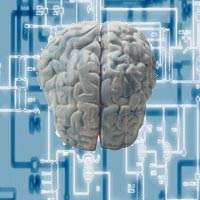(from http://www.betterhum...ID=2004-05-31-2 )
Mice with a high metabolism live longer than their low-metabolism counterparts, a finding that conflicts with a long-held theory of aging and suggests new approaches to extending lifespan.
The findings come from a seven-year study of mice by UK researchers from the University of Aberdeen, the Rowett Research Institute and the Medical Research Council in Cambridge
The researchers found that mice with the highest metabolic rate lived the longest, and their findings suggest that interventions could be used to mimic the effect and increase lifespan in humans.
Rate of living
Metabolism is the process through which cells burn food to produce energy, similar to how cars burn fuel to produce energy for movement.
Scientists have long thought that the higher an organism's metabolism—the faster it burned fuel—the shorter its lifespan.
As early as 1908, researchers had evidence linking metabolic rate and aging.
The long-held "rate of living" theory has sought to explain this link by proposing that higher metabolism leads to greater production of cell-damaging free radicals.
In their study, however, the UK researchers found that the most metabolically active 25% of mice lived 36% longer than the least metabolically active—the equivalent of an extra 27 years in human lifespan.
Uncoupling to survive
The researchers say that the findings support a competing proposition to the rate of living theory called the "uncoupling to survive" theory.
This theory proposes that higher metabolism is actually linked to longer lifespan through a process called mitochondrial proton cycling that is responsible for a significant proportion of metabolic rate.
Increased proton cycling, it proposes, correlates with increased lifespan.
Interventions already exist for increasing mitochondrial proton cycling through a process called uncoupling, suggesting that—if the new findings hold up—the interventions could be used to extend lifespan in humans.
The research is published in the journal Aging Cell













































